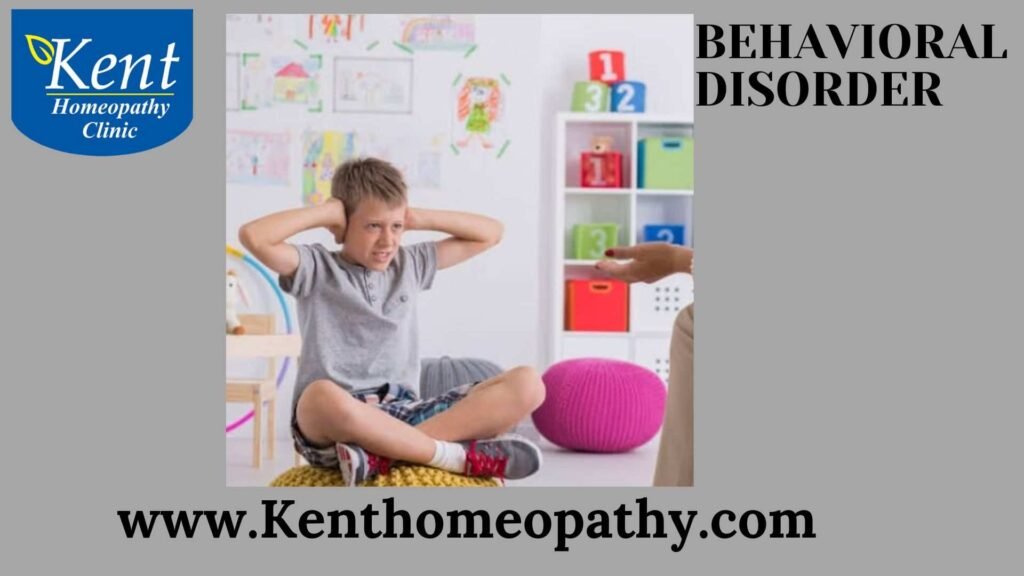Behavioral disorders

Behavioral disorders, also known as disruptive behavior disorders, encompass a range of conditions characterized by persistent patterns of behaviors that violate societal norms, rules, or the rights of others. These disorders often manifest in childhood or adolescence and can significantly impact a person’s social, academic, and occupational functioning. Understanding the symptoms, causes, and types of behavioral disorders is essential for accurate diagnosis and effective intervention.
Symptoms:
The symptoms of behavioral disorders vary depending on the specific disorder, but common behavioral patterns include:
- Aggression: Aggressive behavior, such as physical fights, bullying, or threatening others, is a hallmark symptom of many behavioral disorders.
- Defiance and Opposition: Individuals with behavioral disorders often display defiant and oppositional behavior, refusing to comply with rules or authority figures.
- Impulsivity: Impulsive actions without considering consequences, such as acting without thinking or making rash decisions, are common features.
- Lying and Deceit: Frequent lying, deceit, or stealing may be observed, often to avoid consequences or gain personal advantages.
- Rule Violation: Consistent violation of rules and norms, both at home and in social or academic settings, is a characteristic feature.
- Property Destruction: Individuals may engage in destructive behavior, such as intentionally damaging property, as an expression of anger or frustration.
- School Disruption: Behavioral disorders often manifest in academic settings, leading to disruptions in the classroom, truancy, or academic underachievement.
- Cruelty to Animals: Some individuals with behavioral disorders may exhibit cruelty to animals, reflecting a lack of empathy or concern for others.
Causes:
The development of behavioral disorders is influenced by a combination of genetic, environmental, neurological, and psychological factors. Some common contributing factors include:
- Genetic Predisposition: There is evidence that genetic factors play a role in the susceptibility to behavioral disorders. Individuals with a family history of conduct disorder or oppositional defiant disorder may be at a higher risk.
- Neurobiological Factors: Differences in brain structure and function, including abnormalities in neurotransmitter systems, may contribute to impulsive and aggressive behaviors.
- Environmental Influences: Adverse environmental factors, such as exposure to violence, trauma, or a chaotic family environment, can contribute to the development of behavioral disorders.
- Parenting Style: Inconsistent or harsh parenting, lack of emotional support, and ineffective discipline strategies can contribute to the development of disruptive behavior patterns.
- Peer Influences: Associations with delinquent peers or a lack of positive peer relationships can contribute to the reinforcement of antisocial behaviors.
- Substance Abuse: Substance abuse, either by the individual or within the family, can contribute to the development or exacerbation of behavioral disorders.
- Psychological Factors: Underlying mental health issues, such as attention-deficit/hyperactivity disorder (ADHD), mood disorders, or learning disabilities, may co-occur with behavioral disorders.
Types:
There are two primary types of behavioral disorders that are commonly diagnosed in children and adolescents:
- Oppositional Defiant Disorder (ODD): ODD is characterized by a pattern of defiant, disobedient, and hostile behavior toward authority figures. Common symptoms include frequent temper tantrums, arguing with adults, refusing to comply with rules, and deliberately annoying others.
- Conduct Disorder (CD): Conduct disorder involves more severe and persistent behavioral problems, often extending beyond defiance to include aggressive conduct, violation of the rights of others, and engagement in serious rule-breaking activities. CD can significantly impair social, academic, and occupational functioning.
It’s important to note that while ODD and CD are distinct diagnoses, they often share overlapping symptoms, and individuals with untreated ODD may be at an increased risk of developing CD.
Other Behavioral Disorders:
In addition to ODD and CD, there are other behavioral disorders that may be diagnosed based on specific symptoms and criteria. These may include:
- Attention-Deficit/Hyperactivity Disorder (ADHD): ADHD is characterized by persistent patterns of inattention, hyperactivity, and impulsivity. While it is primarily a neurodevelopmental disorder, its behavioral symptoms often lead to disruptive behavior.
- Intermittent Explosive Disorder (IED): IED involves recurrent episodes of impulsive, aggressive behavior that is disproportionate to the provocation. Individuals with IED may have difficulty controlling their anger, leading to verbal or physical outbursts.
- Disruptive Mood Dysregulation Disorder (DMDD): DMDD is characterized by severe and chronic irritability and frequent temper outbursts. It is typically diagnosed in children and adolescents and aims to differentiate severe mood dysregulation from other disorders like bipolar disorder.
Treatment:
The treatment of behavioral disorders often involves a multi-modal approach, addressing biological, psychological, and social factors. Interventions may include:
- Behavioral Therapy: Behavioral interventions, such as cognitive-behavioral therapy (CBT) or applied behavior analysis (ABA), can help individuals develop coping strategies, improve social skills, and modify maladaptive behaviors.
- Parent Management Training: Parent training programs provide parents with strategies to effectively manage and discipline their children, improving communication and reducing conflict.
- Individual Counseling: Individual therapy can address underlying emotional and psychological factors contributing to disruptive behaviors, helping individuals develop insight and coping mechanisms.
- Medication: In some cases, medication may be prescribed to manage symptoms, especially when co-occurring conditions such as ADHD or mood disorders are present.
- Family Therapy: Involving the entire family in therapy can address relational dynamics, improve communication, and support positive behavioral changes.
- School-Based Interventions: Collaborating with educators and implementing interventions within the school setting can help address academic challenges and promote positive behavior.
Early identification and intervention are crucial for the effective management of behavioral disorders. Seeking the expertise of mental health professionals, psychologists, or child psychiatrists can lead to a comprehensive assessment and the development of an individualized treatment plan tailored to the specific needs of the individual.
Contact to know more
Contact
Timings
Monday to Saturday:
11:00 AM to 02:30 PM
06:30 PM to 09:00 PM
